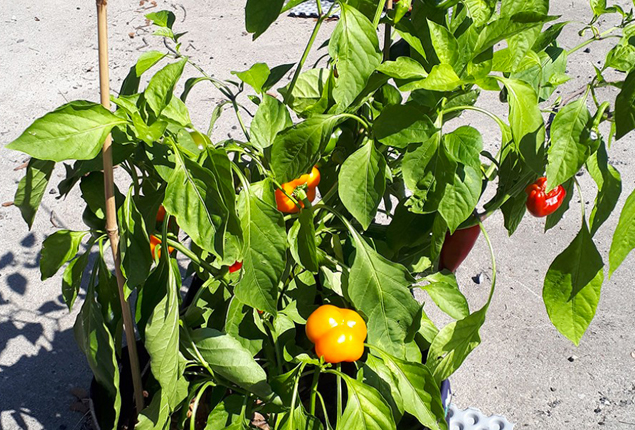Techno-Farm program
The Project
The Techno-Farm program is an initiative involving several large garden plots, a number of experimental agricultural installations and a school-wide composting program. At the heart of the Techno-Farm program are a series of ongoing student-led scientific experiments and engineering projects designed to highlight the potential and applicability of numerous elements of the high school curriculum.
Villa Maria’s Techno-Farm received funding from the NovaScience program (Component 2: Project support) for its 2018–2019 activities. We will be organizing visits, workshops and long-term projects for other schools. The NovaScience program is an initiative of the Ministère de l’Économie, de la Science et de l’Innovation, providing support to organizations that promote greater understanding of science and technology.

The Villa Maria Techno-Farm Project : A Winning Project!
Enrichment
Supplement the science and technology curriculum
Hands-on Learning
Offer experiential learning opportunities
Diversification
Reach more students with an expanded activity offering
Eco-Citizenship
Present the concepts of eco-citizenship and sustainable development
Urban Agriculture Technology
Expose our students and those from other schools in the community to the use of appropriate and sustainable urban agriculture and related technologies
Awareness
Raise awareness of the scientific principles underlying agriculture and composting
To make the most of our vast and varied grounds, a number of EcoLab projects investigating the suitability of different locations for various types of crops are currently being carried out.
One of these locations is the concrete basin in front of the school. During the summer of 2018, 20 plants of different bell pepper varieties were set up in the basin. The basin provided an environment high in reflected heat and light which, according to the students’ research, would be especially beneficial to pepper plants.
This hypothesis proved to be correct; the pepper plants thrived in the basin’s environment and produced many healthy specimens. Next year, the plan is to fill the basin completely with pepper plants.In subsequent years, the pepper-growing operation was continued and further developed by M. Simon Racicot and his students.





Microgreens
Planting microgreens in a controlled environment is one of the EcoLab projects undertaken by Villa Maria students this year. Microgreens are green vegetables harvested after sprouting as shoots (usually within 5-10 days).
As part of the experiment, students controlled the amount of light to which the microgreens were exposed. The accompanying photos show a sample that was kept in complete darkness for 3 days and then exposed to ambient light for 3 hours. Placing microgreens in complete darkness during the first phase of their growth is essential as it not only promotes shoot morphology but provides other benefits as well.
The goal of these experiments is to create a reliable procedure allowing students to grow their own microgreens in the classrooms within the shortest possible period of time. Given their high nutritional value, microgreens are a very healthy addition to sandwiches or salads.




C-Vert Internships - Summer 2018, 2019, 2021, 2022, 2024
In collaboration with the local YMCA, interns from their C-Vert environmental leadership youth program worked at Villa Maria during the summer months to continue and develop projects related to the Techno-Farm program.











pedagogical resources
These pedagogical resources have been created in the context of the Techno-Farm program at Villa Maria. They are made available to schools and educators thanks to the support of the NovaScience program of the Quebec Ministry of the Economy and Innovation (MEI).
- techno-farm – Sec 1 - Soil Analysis
- techno-farm – Sec 1 - Water Use in Fabric Garden Containers
- techno-farm – Sec 2 - Passive Hydroponics
- techno-farm – Sec 2 - Passive Hydroponics - Bottle Connector
- techno-farm – Sec 2 - Passive Hydroponics - Drain Cap
- techno-farm – Sec 2 - Simple Machines
- techno-farm – Sec 3 - Autosiphon